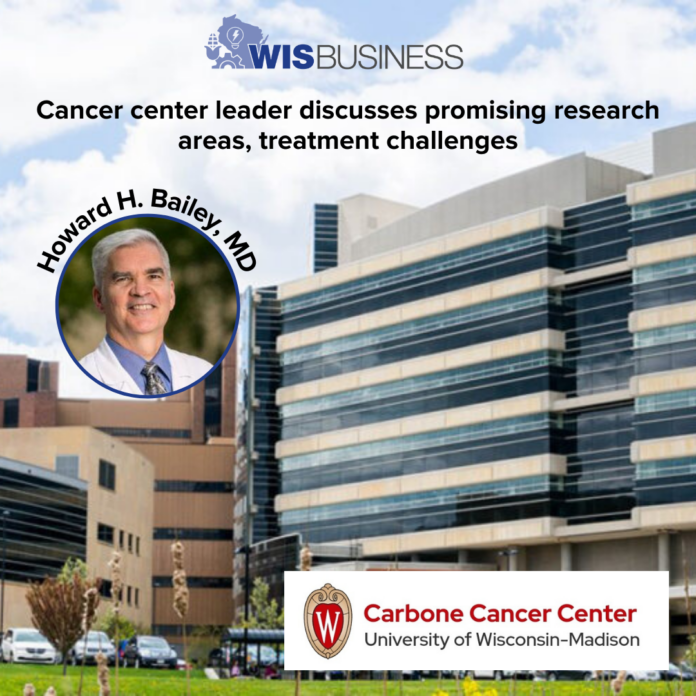25 Jan Cancer center leader discusses promising research areas, treatment challenges
 The head of the UW Carbone Cancer Center says advanced imaging, nuclear medicine and immunotherapies are among the most promising areas of cancer research happening in Wisconsin.
The head of the UW Carbone Cancer Center says advanced imaging, nuclear medicine and immunotherapies are among the most promising areas of cancer research happening in Wisconsin.
Dr. Howard Bailey, director of the Madison-based cancer treatment and research organization, spoke this week during a meeting of the Wisconsin Technology Council’s Innovation Network. He emphasized the progress being made in understanding and developing more effective treatments for the disease, as well as new approaches to prevention.
“What has happened in the last 10 to 15 years, with the discovery of more aspects of immunology, is we are literally curing people now that 10 years ago we did not,” he said Tuesday. “So there’s great growth in that, and how we can apply that to all things.”
UW-Madison researchers at the UW Carbone Cancer Center are studying prostate cancer, multiple myeloma, breast cancer, leukemia, and head and neck cancers, among many other forms of the disease. The center is typically engaged in 20 to 30 different studies at any given time, Bailey said.
But the central challenge of developing treatments is that even within a specific type of cancer, significant variations can make it difficult to treat different patients in the same way, he explained. Two women with a specific form of breast cancer — infiltrating ductal carcinoma, for example — could have different genetic factors and require different treatments.
Still, he said combining the latest imaging techniques with the use of radioisotopes shows great promise, touting the work of nuclear chemists in the field of cancer diagnostics and therapy. These radioactive materials help clinicians identify the precise location and structure of cancer within the body, enabling the targeted destruction of these cells while healthy tissues are spared.



